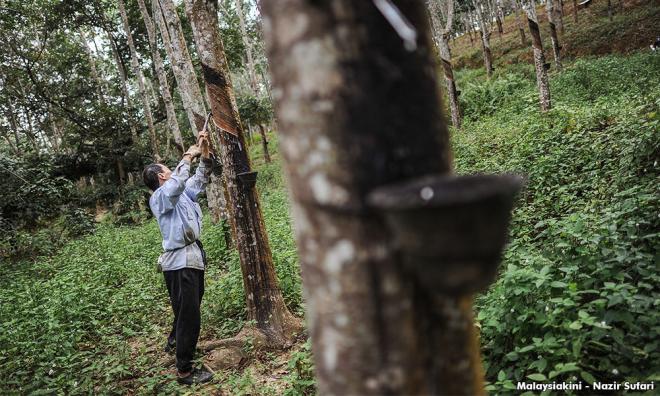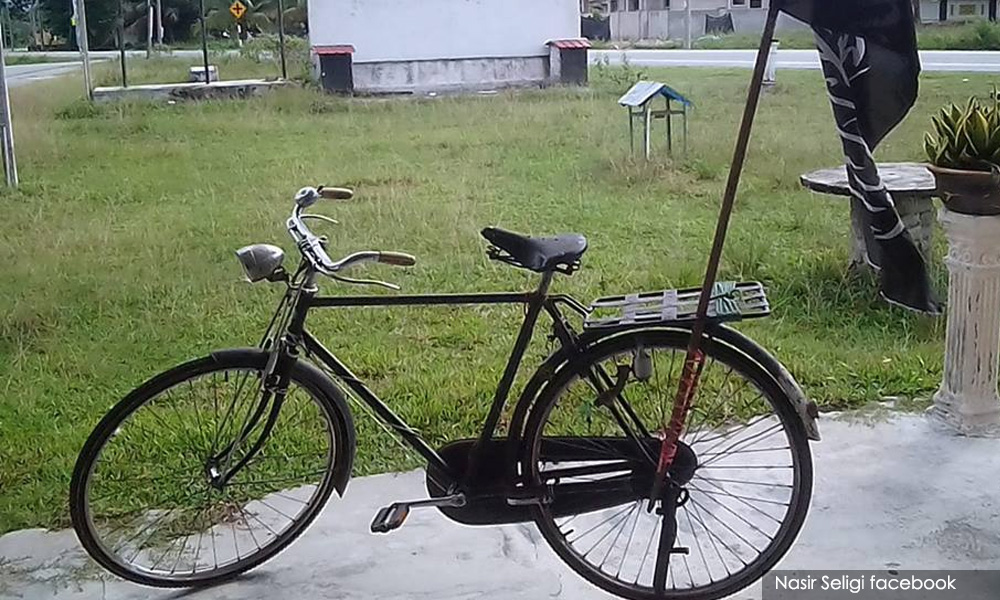
Next to my parents’ kampung house in Bukit Mertajam, Penang, there was a plot of abandoned government land. Many years ago, an old Chinese man living in the same kampung requested to use the land for agricultural purpose.
With the government’s approval, he cleared up the land all by himself and planted papayas, bananas and tapiocas.
As a young girl, I used to watch the middle-aged uncle in his old bicycle work on the land every single day. He’d arrive early in the morning, take lunch breaks under his trees and leave in the afternoon. He worked very hard.
When it was the harvesting season, I’d see him carefully pluck his fruits, wrap them in newspapers before placing them into a rattan basket attached to the back of his bicycle.
Often, my dad who’d be busy with his coconut, rambutan and ciku trees around our house compound, would strike up a conversation with the uncle. I still remember clearly the images of the two men sharing tips on planting while busy with their respective works.
On every harvesting season, the uncle would send us the fruits of his harvest. Thanks to him, my brothers and I have had the pleasure of enjoying steamed tapioca for tea time throughout our childhood.
As my brothers and I grew into our adulthood, the uncle grew older. Busy with our lives, I seldom see him around. On occasions that I do, I remember noticing his fragile body frame, cycling and working at a much slower pace than he did before.

And then one day, he stopped working on the land altogether. I heard he was often sick and his old age did not permit him to work as hard as he did before.
All the plants which were left unattended on the land soon died and bushes began covering the area.
Sometime later, another Chinese uncle living in the area decided to make use of the abandoned land. With the approval he received from the government, he too made use of the land to help him and his family make a living.
Besides papayas and bananas, he also planted durian and rubber trees. And like the man who worked on the land before him, I started witnessing the uncle work very hard on the land. From ploughing, planting and harvesting to weeding, fencing and building his own little water tank – he did it all by himself.
I remember a comment made by my mum some time ago, while we were at our garden, sipping our ginger tea: “Chinese men are very smart. They see the opportunity to make money and they grab it. So many of us walk around the abandoned land every day, but no one thought of getting permission from the government to turn the land into something useful. We should really emulate them.”
I agreed with my mum as I too was inspired by the men whom I had observed since young.
Notice to vacate part of the land
One day, the Chinese uncle received a letter asking him to vacate part of the land. Apparently a portion of the land had been given to a poor Malay family. The state Lembaga Zakat had offered to assist them in building a house on the land.
Upon hearing the news, I became quite upset. I felt it was unfair that the Chinese uncle had to work very hard to put a roof over his head and make a living for his family while the Malay family was easily given a house to live in, without the need to put in any hard work.
Soon, a portion of the land was cleared to make way for the building of the house, which coincidentally was right next to my parents’ house. As I watched every step of the construction of the house take place, I remember feeling angry at how unjust it was.
Last week, my parents decided to visit their new neighbour, who have settled in their new house for a few weeks. I can never forget the way my mum expressed herself while updating me on their visit that day.
“They are a young couple with three young children who are surviving by selling nasi lemak. There’s nothing in the house. They have nothing. Only a few clothes in boxes, some chairs, some pillows and a small television set. No other furniture at all. Even the children have no toys, they play in the dirt in front of their house.
“I feel so sad. I can’t stop thinking about them. Maybe God placed them next to us so we can help them?”
All struggling Malaysians, trying to survive
Mum’s words instantly made me feel lousy. The Malay family were no different than the two Chinese men – they were all struggling Malaysians, trying to survive.
“I feel bad for being angry at the Malay family,” I admitted to mum. “But how is the Chinese uncle taking it – I am sure he is quite upset about losing his trees.”
“I don’t know about that, but the Chinese man has left a few rubber trees near the house for the Malay man and his family. I saw the Malay man tapping rubber and filling up the buckets with rubber milk. I think it will be a good side income for the family, besides their nasi lemak sale,” mum said.
At that moment, I felt so embarrassed with myself. It was very easy for me to criticise the matter when it did not affect me. But for the Chinese uncle who was also struggling to make a living, he did not see the presence of the Malay family as taking away the fruit of his hard work - instead he offered help, for he knew how difficult it was to live a struggling life.
Sometimes, ordinary Malaysians like us are so caught up in a world created by our politicians, where we end up micro-analysing what’s right and what’s wrong, trying to determine who is victimised and who is privileged.
We are always trying to draw lines to separate one from another, often forgetting that we are actually all the same.
I hope Year 2020 will remind us that we are not that different after all.
Let kindness and compassion be our moral compass throughout this year and beyond.
FA ABDUL is a passionate storyteller, a media trainer, an aspiring playwright, a director, a struggling producer, a photographer, an expert Facebooker, a lazy blogger, a part-time queen and a full-time vainpot. - Mkini



No comments:
Post a Comment
Note: Only a member of this blog may post a comment.